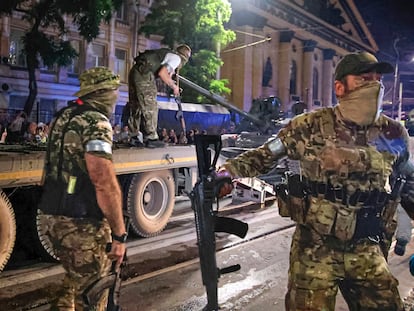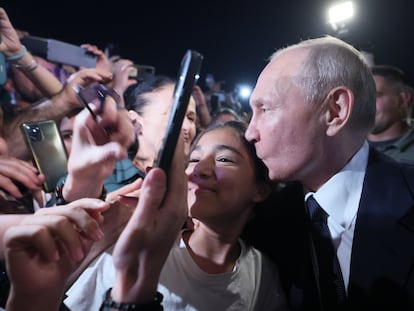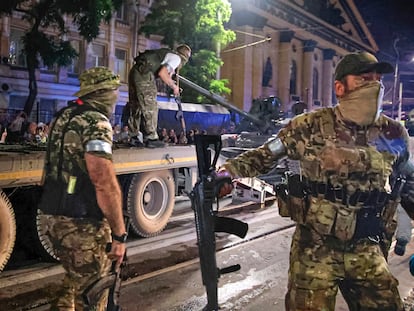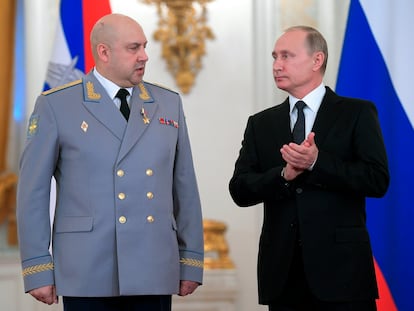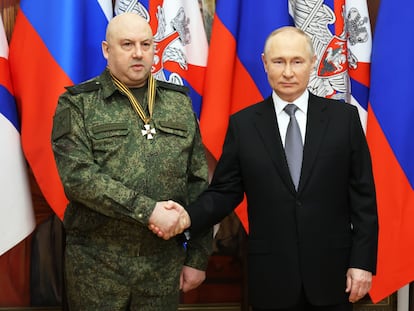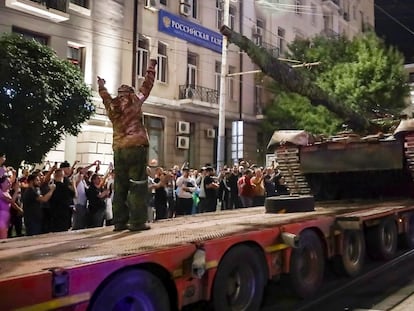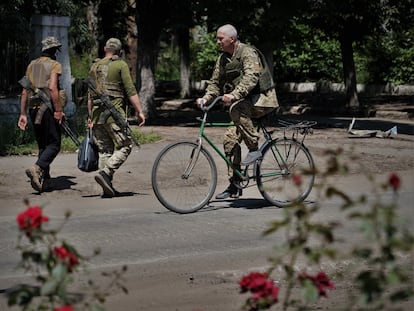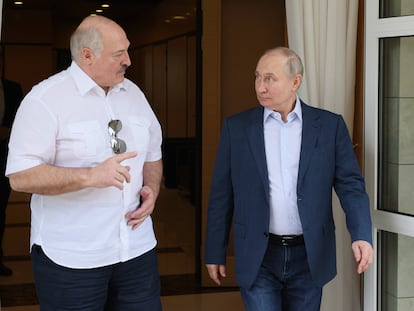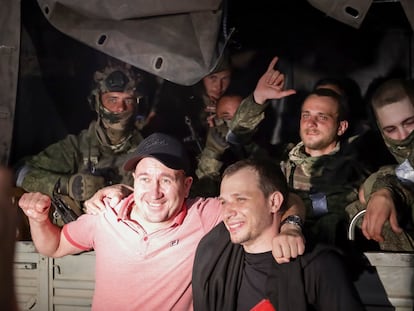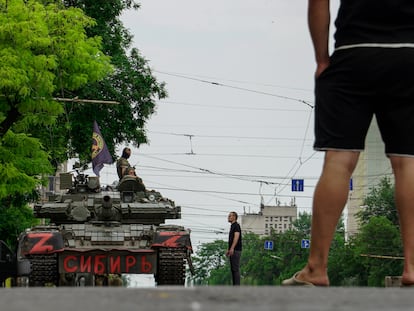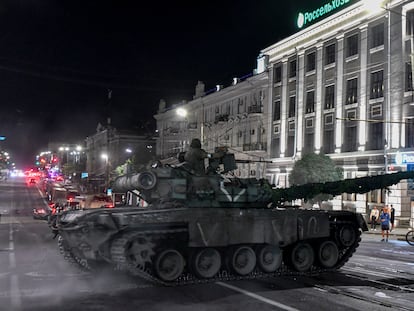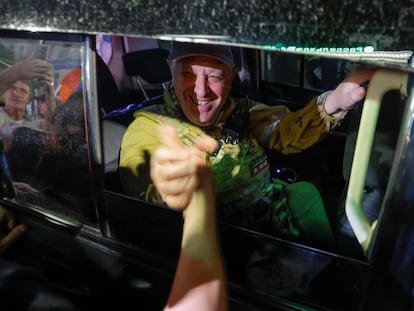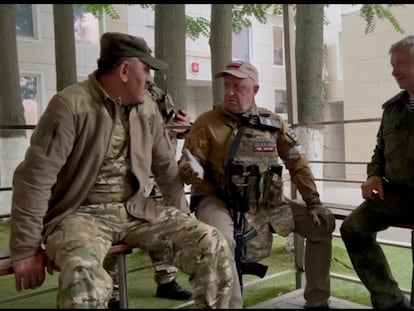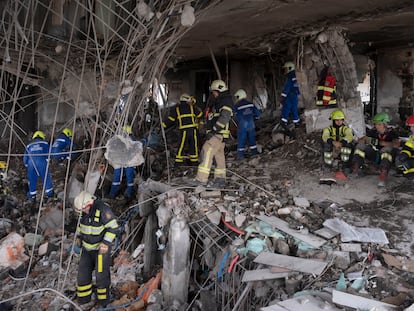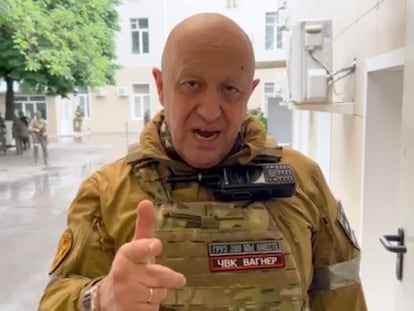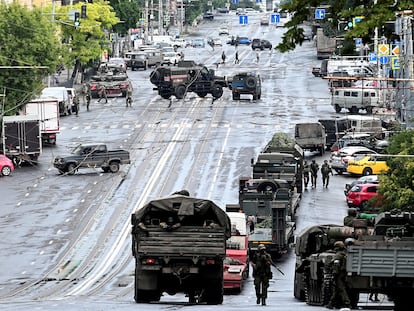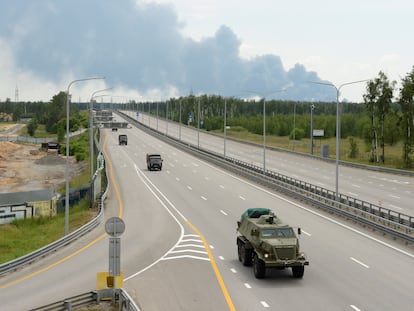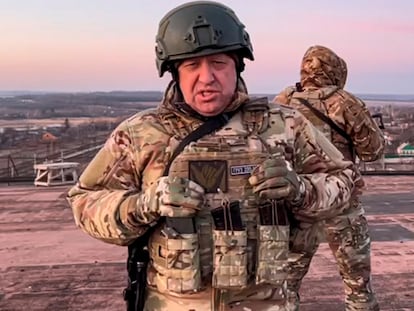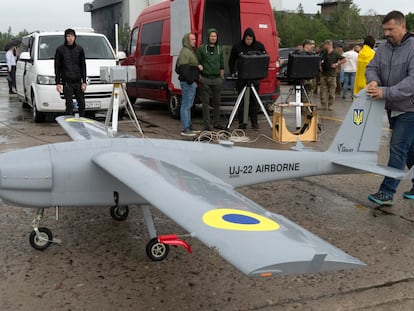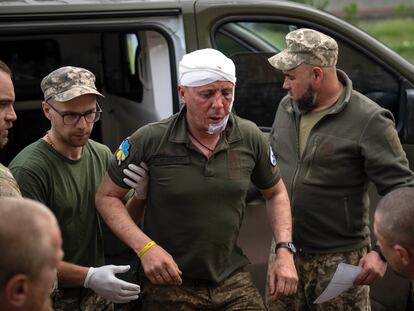The crisis in Russia over Wagner’s mutiny has revealed the complex network of troops working in and outside of the country. The Kremlin helped create a system that has now turned against him
The failed rebellion of Wagner’s mercenaries has shown the cracks in the Russian leader’s power. In addition to the war in Ukraine, the president faces international pressure, faltering domestic support and a bleak economic outlook
The images provided by Planet Labs PLC suggest that dozens of tents were erected within the past two weeks at a former military base outside Osipovichi, a town 230 kilometers (142 miles) north of the Ukrainian border
Prigozhin and his fighters escaped prosecution and were offered refuge in Belarus by authoritarian President Alexander Lukashenko, who said his country could use their experience and expertise
It’s not clear whether Surovikin faces any charges or where he is being held, reflecting the opaque world of the Kremlin’s politics and uncertainty after the revolt
The Russian president came out of the crisis caused by the Wagner rebellion weakened, but he has not yet been defeated. He has merely avoided a decisive fall
Officials also claim there are indications other Russian generals may have supported Prigozhin’s attempt to forcibly change the leadership of the Defense Ministry
Following the aborted uprising, it remains unclear where Prigozhin’s 20,000-25,000 mercenaries are deployed and what their next move will be after their leader’s exile
Those prisoners agreeing to join the mercenary group were promised freedom after their service, but cases where these recruits are involved in violent crimes are causing alarm
Russian authorities said Tuesday that they have closed a criminal investigation into the Wagner uprising and are pressing no charges against Prigozhin or his followers
The support received by the mercenary group is threatening the united front that the Kremlin is trying to build
Around 99% of residential buildings and 80% of the houses are damaged or destroyed in the town, which is close to the front where the Wagner Group gained greater prominence
Aleksandr Lukashenko has the best political instincts in Europe. The Belarusian leader is now in a position to mediate between the Kremlin and the mercenaries, and could perhaps play the role of arbitrator between Moscow and the West
The end of the rebellion has raised questions about what will happen to the mercenary group, which acts as the Kremlin’s unofficial armed wing in countries such as Mali and the Central African Republic
The main unknown in Wagner’s attempted rebellion is whether Prigozhin’s uprising is an isolated act of a defiant coup plotter, the figurehead of one (or several) Kremlin families, or both
Life in Moscow and the southwest border with Ukraine has returned to normal after the mercenaries stopped their march towards the Russian capital, but the security crisis has called into question Putin’s strongman image
Washington’s greatest concern in the face of a possible rebellion led by Prigozhin centered on control of Russia’s nuclear arsenal
Prigozhin said he was ordering his troops to halt their march on Moscow after reaching a deal to resolve the crisis. The Kremlin announced that it will drop charges against the mercenary leader, who can take refuge in Belarus
While Putin and Prigozhin scuffle, the front is left unprotected. Meanwhile, President Zelensky is celebrating a new sign of Russian weakness
‘The longer Russia keeps its troops and mercenaries on our land, the more chaos, pain and problems it will have,’ President Zelenskiy warned
The head of the private security company Wagner has raised his profile during the war in Ukraine. His attack poses a major challenge to the Kremlin
El grupo de mercenarios rusos, con Yevgueni Prigozhin a la cabeza, ha llamado a levantarse contra el poder del Kremlin
After the deal was reached Saturday, Prigozhin said he was ordering his troops to halt their march on Moscow and retreat to field camps in Ukraine, where they have been fighting alongside Russian troops. The deal appeared to defuse a dramatically escalating crisis
Prigozhin posted a series of angry video and audio recordings in which he accused Defense Minister Sergei Shoigu of ordering a rocket strike Friday on Wagner’s field camps in Ukraine
Media and defense analysts are increasingly reliant on Russian military sources for reports on front line combat operations after Kyiv imposes news blackout
Tuesday’s attack, which targeted an area near the official residence of Vladimir Putin and has been attributed to Kyiv by the Kremlin, has raised questions about Russian air defenses
Yevgeny Prigozhin’s figures stood in stark contrast to Moscow’s widely disputed claims that just over 6,000 of its troops were killed throughout the war as of January
